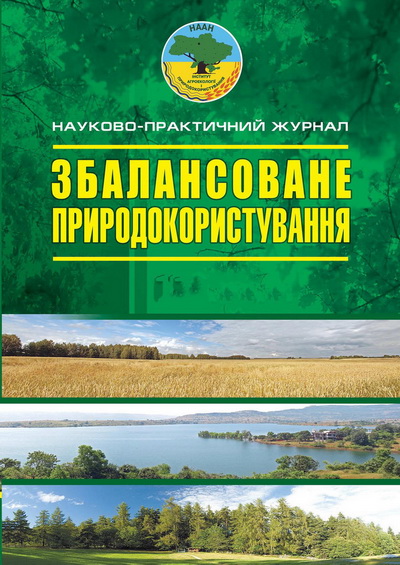METHODOLOGY OF EVALUATING THE CONSUMPTION OF VIRTUAL WATER CONSIDERING THE FEATURES OF ORGANIC PRODUCTION
DOI:
https://doi.org/10.33730/2310-4678.3.2018.190377Keywords:
virtual water, water footprint, evaporation, organic products, traditional agriculture, water resources, green economy, green water, estimation, blue waterAbstract
The article is devoted to the study and substantiation of the theoretical and methodological foundations
for assessing the consumption of virtual water taking into account the features of organic production
using the water trace tool, which allows you to make the right management decisions on the rational use
of water resources in the agricultural sector, particularly in organic agricultural production.
Water should be a tool that makes it possible to comprehensively assess the attitude of the consumer or
producer to the use of freshwater systems: it is a comprehensive indicator of assessing the volume of water
consumption and the level of pollution of water resources for all quality components; It is not an indicator
of local environmental impact, water consumption and water pollution, since this impact depends on
the vulnerability of the local water system and the amount of water used by consumers and pollutants of
the freshwater system. The water footprint tool provides accurate information on how water is used for
various purposes; is the basis for drawing conclusions about the sustainable and reasonable use of water
resources and their distribution, as well as the basis for assessing the environmental, social and economic
impacts at the regional level.
Based on an adapted methodology, an assessment of the water footprint of organic farming in Ukraine
has been carried out. In most regions characterized by low water availability, this indicator is high due to
the growing of crops with significant water consumption. In general, the implementation of the proposed
methodology will ensure food, environmental safety of the object of study and increase the competitiveness
of the industry.
Issue
Section
License
- The authors reserve the right to authorship their work and pass the journal the right to publish this work under a Creative Commons Attribution License license, which allows other persons to freely distribute the published work with the obligatory The authors of the original work and the first publication of this magazine.
- The authors have the right to make independent additional agreements on the nonexclusive dissemination of the work in the form in which it was published by this magazine (for example, to post work in the company's electronic storage or to publish as a monograph) , subject to the first publication of the link to this journal.
- Journal policy allows and encourages the placement of authors on the Internet (for example, in the repositories of institutions or on personal websites) manuscript work as to the presentation of this manuscript to the editorial board and during its editorial processing, as it contributes to The productive scientific discussion and positively affects the efficiency and dynamics of citation published work (see The Effect of Open Access).


